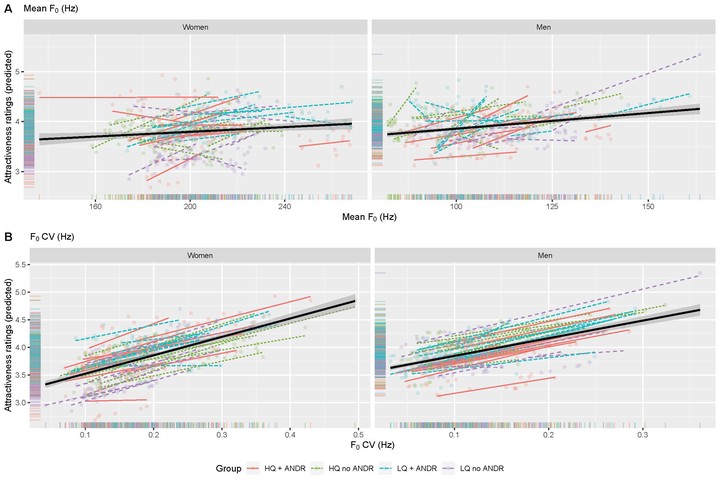Contextualising courtship: Exploring male body odour effects on vocal modulation
 Image credit: Juan David Leongómez 2020
Image credit: Juan David Leongómez 2020Resumen
Voice characteristics are important to communicate socially relevant information. Recent research has shown that individuals alter their voices depending on the context of social interactions and perceived characteristics of the audience, and this affects how they are perceived. Numerous studies have also shown that the presence of bodily odours can elicit psychological changes in people. Here, we tested whether the presence of male axillary odour would influence vocal modulations in courtship contexts. We analysed differences in vocal parameters and attractiveness ratings across 950 recordings from 80 participants as they responded to opposite sex target stimuli. Using these, we tested whether men’s and women’s vocal parameters and perceived attractiveness differed in the presence or absence of the odour. We expected women to speak with increased voice F0, and men to lower their pitch, when exposed to male body odour, especially if it were of high quality. However, neither the presence of male odour, its quality, nor the addition of androstadienone produced any consistent changes in vocal parameters. Nevertheless, rated stimulus attractiveness was predicted by F0 and especially F0 variability, suggesting that this is a key parameter in signalling attraction during human courtship, and supporting the idea that vocal modulations are context-sensitive.